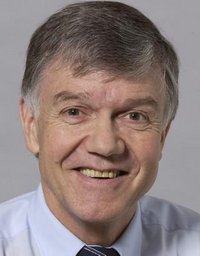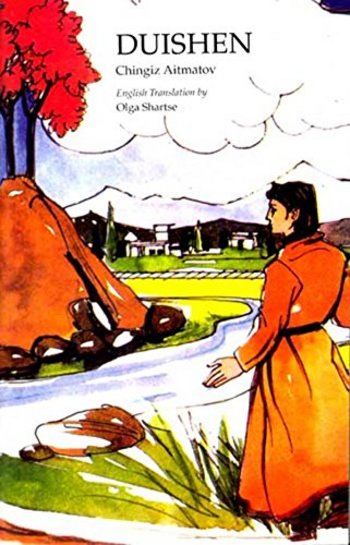What I needed were real teachers!
by Carl Bossard
The end of the school year is always also a farewell to teachers. What was their from day to day influence? Decisive conditions for success in the field are revealed by their own personal thoughts and by student statements.
“What do I leave behind?” asks a retired teacher. He has worked at the same institution with heart and soul for 40 years. These days, that is no longer a matter of course. False cuddliness and fast-selling alignment never were his thing. Whoever confronted him felt a certain severity, felt that he would make demands.
When he left, he was asked about the most important issues in his professional life, and he surprisingly said: “Humiliations – unintentional injuries that we inflict on our students.” Anyone speaking in this way is aware that he is not simply teaching mathematics or German, he is not simply teaching a subject. No, he is teaching young people. And a second thing is clear to him: it is a human being who stands before the children and young people – with all his strengths and weaknesses, all at the same time.
The litmus test in everyday school life
A basic pedagogical attitude shimmers through in the unexpected sentence quoted above. It guided this teachers’ work of many years: he sought to combine goal-oriented teaching with human empathy and to reconcile basic humanistic obligations with professional consistency. He wanted to have an effect, wanted to achieve “added value”, wanted to lead to aha moments. And that is what he did – for generations of young people who came to him for lessons. There was only one indicator for the success of his commitment: the learning success of his students. But he added, in a sibylline fashion: “Would I like to go to school with me?”
That is probably the litmus test: a person’s influence in the school institution. People give its value to the institution. “It is the teacher that counts,” has been said in professional literature from its beginning. “I’m super important” was a title of Die Zeit after the publication of the famous study by John Hattie.1 There it said in large letters: “Small classes are useless, open instruction is useless. What matters is: the teacher.” And, let it be added, also the quality of his or her teaching.
Attitude and passion
The teacher’s personality, and not simply his knowledge or “professional competence” plays a large part in his teaching.2 The quality of teaching depends on the teachers. Their expertise, their attitude, their passion are decisive – and also whether they are willing to check the effectiveness of what they do. In other words: “What impact do I have? And would I like going to school with me?” It is not enough for teachers to know a lot and be trained in modern methods. They must also be able to build up a relationship with their students and want to help them progress.
One such teacher was known by 16-year old Chayenne Wiederkehr from Stäfa. She made the leap from secondary school B, the former Realschule, directly to the Gymnasium, reported the SonntagsZeitung in an insightful portrait.3 The student also passed the hard probationary period. She owed this unusual step to her teacher, who “immediately recognised my potential and encouraged me enormously.” The secret of this pedagogue: She combined intensive, topic-related learning on the part of her student with a high degree of person-oriented teacher control. That worked.
“What I needed instead were teachers!”
The writer Lukas Bärfuss outlines what student-centered teachers can achieve with their inspired passion. In his “Ode to Teachers”, winner of the renowned Georg Büchner Literature Prize, he writes: “I hated school, but I loved my teachers. That is a little strange, I know. But basically it is no contradiction.”4
His “school career was [...] not exactly what you would call successful,” Bärfuss admits. After nine years of being taught, he left school and took a job. He candidly admits: “I didn’t need a class schedule, I didn’t need a curriculum. I didn’t need desks, I didn’t need exams. – What I needed were teachers.”
“My teacher’s enthusiasm aroused my own enthusiasm”
Teachers such as the deputy one in his seventh grade: “A man with a beard who read poetry to us. Not because it was in the curriculum. He read poems to us because he loved poetry. Poems were important to him. Vital! And basically he didn’t share the poems with us. He shared his love, he shared his passion.”
Thanks to this pedagogue the later poet Bärfuss was able to memorise some poems: “Harlem” by Ingeborg Bachmann or Rainer Maria Rilkes’ “Ich lebe mein Leben in wachsenden Ringen – I live my life in growing rings”. This was because “I felt how these poems touched our teacher, and I wanted to experience this touch. My teacher’s enthusiasm awakened my own enthusiasm”. This passion for the educational mission results from a passion for the world; it springs from a lively interest in the cause and in young people. Bärfuss is deeply convinced of this.
“Because he infected us with his passion”
“She was an enthusiastic teacher to the last day of school.” You hear that often and we even read it in the days between school years. Or then it says: “He passionately liked his work in the classroom.” So it is not “the teachers” alone that count, but the teachers’ enthusiasm, their pedagogical passion.
This is the decisive factor for success in the field. It is not without reason that the writer Thomas Hürlimann says of his physics teacher Father Kassian in the Einsiedeln monastery school: “He was an excellent teacher, because he infected us with his passion. [...] He knew how to inspire me with enthusiasm even for physical processes and formulas.“5
Lukas Bärfuss accents this even more: “I do not know what would have become of me if my teachers had not shared their passions with me.”6 He needed “their passions, their enthusiasm.” And he repeats: “I would not have needed a school. But without teachers I would be poorer”. •
1 Spiewak, Martin. “Ich bin superwichtig!” (I am super important!), in: Die Zeit, 3 January 2013, p. 55.
2 Oelkers, Jürgen. Die Persönlichkeit im Lehrberuf und wie man sie bildet (The personality in the teaching profession and how to form it), unpubl. Ms., 2009, p. 2.
3 Bandle, Rico. “Sie schaffte es von der Sek B direkt ans Gymnasium” (She made it from Sek B directly to high school), in: SonntagsZeitung of 28 June 2020, p. 21.
4 Bärfuss, Lukas. Stil und Moral (Style and morals. Essays). Munich 2018, p. 152 [punctuation adapted].
5 Hürlimann, Thomas. “Die pädagogische Provinz”, in: Der Sprung in den Papierkorb. Geschichten, Gedanken und Notizen am Rand. (The Pedagogical Province, in: The Leap into the Wastebasket. Stories, thoughts and marginal notes). Zurich 2008, p. 109.
6 Bärfuss, op. cit., p. 155.
Source: Journal 21
Chinghiz Aitmatov: Duishen/The first teacher
cc. In his moving novel “The First Teacher” (1962), the Kyrgyz writer Chinghiz Aitmatov uses the young teacher Duishen and his pupil Altynai, whom Aitmatov lets tell the story, to point out what is most important at school: the teacher.
„Duishen taught us as well as he could, he taught us what he thought we should know, guided by his instinct alone. But the sincere enthusiasm with which he tackled the job was not wasted on us, of that I am sure.
He accomplished more than he realised. Yes, he did, because in that school of his, in that old mud stable with gaping holes in the walls through which we could see the snow-clad mountaintops, we Kirghiz children, who had never left the confines of our village, suddenly glimpsed a new and wonderful world. […]
I was the oldest of his pupils. Perhaps that was why I was the quickest to learn, though I don’t think it was the only reason. Every word he spoke, every letter he taught me to write, were sacred for me. And there was nothing more important in life than grasping what he taught. […]
I suppose we all adored our teacher for his kindness, his goodness, for his dreams about our future. I think we appreciated all that, young though we were. Why else did we make that long tramp to school every day, gasping in the wind as we climbed the steep hill, wading through the deep snow? We went to school of our own free will. No one forced us to go and freeze in that icy barn. It was so cold there that rime formed from our breathing on faces, hands and clothes. We took turns warming ourselves near the stove, while the rest sat still and listened to Duishen.“
Source: Chinghiz Aitmatov. Duishen/The first teacher, National Book Trust, A-5.
Green Park, New Delhi-110016 India, 2002

